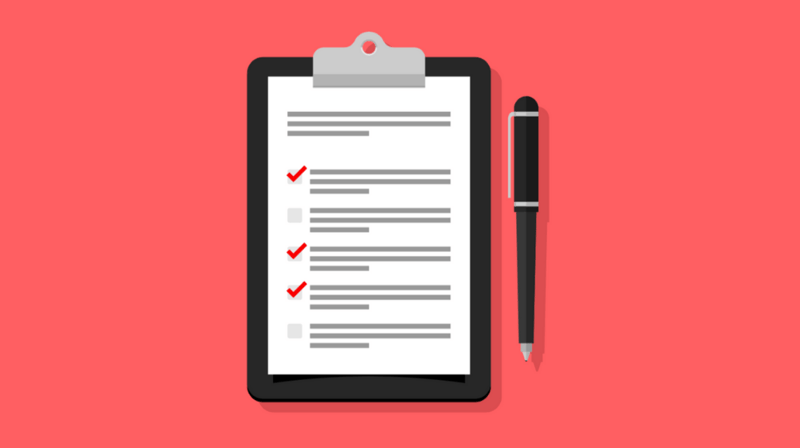Many of us are impressed by the incredible work and passion of student activists on our campuses — whether it’s through in-person protests, or more likely right now, virtual initiatives.
We want to support them but we’re not entirely sure how. What exactly do students need from us? How can we best empower them?
Supporting student activists is especially tricky considering that we serve as representatives of an administration that students may be disagreeing with. We want our students to feel supported but we also want to be valued and appreciated by the administrators who hold power above us.
It’s an extremely tricky, fragile line to straddle. So to help folx navigate it, I recently hosted a webinar with three incredible people who are extremely well-acquainted with student activism:
- Jael Kerandi — the first Black undergraduate student body president at the University of Minnesota (Among her many accomplishments as president, Jael was instrumental in getting her university to divest from the Minneapolis Police Department.)
- Marcelius Braxton — assistant dean of students and adjunct professor at Capital University Law School (Marcelius is also a frequent contributor to the Presence blog; He’s written about anti-racism, the sanitization of cultural holidays, and the power of micro-affirmations.)
- Ashley Gaddy — former student affairs professional and current director of business development at Cook Ross, a consulting firm focused on diversity in leadership (Ashley also chatted with me about student activism last fall in a Will There Be Food? podcast episode.)
Jael, Marcelius, and Ashley shared their tips for working with student activists, discussed the impotence of self-care, shared their perspectives on how we need to respond to anti-Black racism as an emergency, and so much more.
I’ve loved hosting every Presence Happy Hour but full disclosure: This might have been the most memorable one yet.
If you missed it, you can download the full webinar here. Additionally, I’ve compiled ten of the many (many, many, MANY) standout quotes below.
Enjoy! I can’t wait to hear about all the amazing work of your student activists.
10 Standout Tips
1. Let your students see your emotions.
“I think we can do a better job, not only in emoting, but emoting more and being realistic with anger and rage. Let your students see that you’re fired up. It takes so much energy to try to suppress that.
And I think when students see that, their anger and rage, if that’s what they’re feeling, it’s something that feels validated. Because in the Black community, anger and rage are not something that we’re allowed to emote. We’re not allowed to be that without being a stereotype.
So I think that that’s one of the ways that SA pros can do a better job of supporting their students — becoming in reality with anger and becoming in reality with rage.” — Ashley Gaddy
2. Be explicit about your support of student activism.
“We, as student affairs professionals, need to be really explicit in what we do. We have to acknowledge that student activism is a good thing because we wouldn’t have our jobs without students. So, it’s our job to make students feel like they belong and they have community. We have to make sure we do a better job of listening and encouraging them to speak up.
We can do a better job supporting our activists, help them be prepared, help them develop the skills to be effective, help them connect with folks in the community. They’re already doing this work; we just need to help them harness their passions.” — Marcelius Braxton
3. Understand that students value your work tremendously.
“There have been many times where I feel like our student affairs office is not given the credit that they deserve, or they’re not given the respect that they deserve, and it’s not okay. Because at the end of the day, who’s working with students, right? The administration who was sitting in meetings for 10, 12 hours a day is not the one who I want to be in there speaking on behalf of me.” – Jael Kerandi
4. Empower your students to face obstacles head-on.
“I think it’s really important to be transparent. You have to empower your students. You have to say, ‘This is a student-led initiative. This is not me doing this.’
And so how I go about [helping students deal with roadblocks] is I talk to them. I say, ‘These roadblocks I’m throwing up are about preparation.’ And also making sure you affirm them. Say ‘I know that you can overcome this, but there’s no reason for me not to prepare you.’ If I’m advising you, my job is to prepare you. My job is to ask these tough questions and your job is to take all the power that you have and have an answer for that question. So that way, when you get into whatever room, whatever space you need to go into, you’re ready.” – Marcelius Braxton
5. Don’t do the work your students need to be doing themselves.
“SA pros, do not, do not spend the energy that your students don’t give. Affirm them, empower them to go off, do the work, and bring it back. It is not until [a student has] come back to me with something that ‘I’m like, all right, we can really do this.’
Do you know how many times we have over-extended ourselves? We gotta stop doing that, SA pros.” – Ashley Gaddy
6. Advocate for students in rooms they can’t be in.
“Your job is to empower students. I think that if you’re a professional at the institution, now you can get into rooms that students can’t get into as easily. [So say] ‘let me elevate the voices of the people who need to be speaking, which are the students.” – Marcelius Braxton
7. Remind students of the power that they have.
“While you can encourage the students to do X and Y, if the university still doesn’t want to listen, the back is going to break. It’s getting to the point where students are saying, ‘I am paying money for this place. It is no longer acceptable that the diversity and inclusion and these policies and these things you put on your websites and these acknowledgments that you make that really have little substance are okay.’ People are saying, ‘I’m coming back to the word that you’re putting in policy.’
So, you can remind students of the power that they have. I think that’s where you can come in. You can remind them and say, ‘How much are you paying at the end of the day? How much money are you putting into this institution for operations? … Do you believe you’re getting a return on your service? When your professor is having microaggressive behavior, are you getting a return on your service?” – Jael Kerandi
8. Racism needs to be responded to as the emergency that it is.
“I told a student this today: You should not only use [the institutional administration’s] words against them but also use their actions against them.
Look at COVID-19. They said it’s an emergency; this pandemic’s an emergency. So, do you think racism is an emergency? Do you think murder is an emergency? Well then, you have to respond in the exact same way.
We always say ‘This takes time. It will take years and years and years.’ But COVID-19 hit and what did we do? We responded. It wasn’t necessarily the best way; we had to reevaluate things. But the one thing every school, every institution did, is we responded.
We [need to do] the same thing when we approach racism, when we approach diversity, equity and inclusion. And the other thing we did with COVID, we put more money into it. We had to put more money into different assets, different parts of our institution.
We have to do the same thing with diversity, equity, and inclusion. So if you’re going to do this for COVID-19 as an emergency; racism is an emergency. So I’ve told students to do that. That’s the way you always frame it.” — Marcelius Braxton
9. Community is key to self-care.
“Within probably the past two years, I’ve truly embrace Audre Lorde’s and kind of what Angela Davis is now kind of picking up in her platform about this radical self-care that requires community. I used to turn it so inward that I didn’t even allow for people to love on me and help me take care of me.
So, I have fully embraced radical self-care that requires community. And I don’t feel bad now when I make the call out for help. I can look at my calendar and be like ‘hmm, all right, this is going to be a [challenging] week.’ I [ask people], ‘If you have time and capacity, check on me. If you have time and capacity, ask me did I eat? Are your drinking water? Your skin good? You get your vitamin D for the day?’
And I used to feel guilty about that. [But I’ve since realized that] it is mandatory that my community helps me take care of me. And in return, I help them take care of them.” — Ashley Gaddy
10. Encouraging self-care in students is not about silencing their voices.
“My phone goes on do-not-disturb at 5 pm every day. Everybody knows that if you want to get in touch with me, it’s going to be a little harder after 5 pm.
That’s not because I don’t want to talk to anyone but because you have to set a boundary somewhere, otherwise people will just think you are always available to them. It is very important to make sure people understand that you have boundaries and you have other priorities in your life that exist. Me calling my mother is a non-negotiable. It doesn’t matter what is going on. I’m going to speak to my family.
[And it’s also important to have] people in your life that are willing to say stop — but not in a way that feels as if they’re they’re suppressing your work. There have been people who want you to stop so they can get ahead. There’s a difference.” — Jael Kerandi
Thanks so much for chatting with us, Jael, Marcelius, and Ashley!
And don’t forget: You can still download the full lively webinar here, and sign up to attend or download future happy hours — featuring #SApros addressing a multitude of challenges and triumphs — here. We hope you’ll join us!






